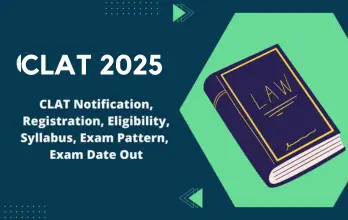
Lack of Proper Preparation: One of basic reason behind why students fail in bank exams is lack of proper preparation. This factor encompasses a range of issues related to inadequate readiness for the exam. A well-organized study plan is crucial for effective preparation. Here are strategies to address these challenges:
- Define your objectives and what you aim to achieve in the exam.
- Identify the key subjects or topics you need to cover and allocate sufficient time to each.
- Develop a structured study plan with specific study sessions, breaks, and revision periods. Stick to the schedule as closely as possible.
- Practice solving mock tests under time constraints to simulate the actual exam experience and improve your time management skills.
- Work in focused 25-minute intervals (Pomodoros) followed by a 5-minute break. After four Pomodoros, take a longer break. This technique can improve concentration and reduce procrastination.
- Develop a structured study plan with specific study sessions, breaks, and revision periods. Stick to the schedule as closely as possible.
Poor Study Habits: Poor study habits can have a detrimental effect on their ability to succeed in bank exams. These habits can hinder effective learning and preparation. Attempting to study while simultaneously engaging in activities like watching TV, browsing the internet or texting can reduce focus and comprehension. Here are strategies to address these challenges :
- Engage actively with the material. Take notes, ask questions, and participate in discussions or study groups to deepen your understanding.
- Schedule periodic reviews of previously covered material to reinforce your memory and understanding.
- Focus on one task at a time. Multitasking can reduce your ability to concentrate and retain information.
- Before using any study resource, research its credibility and relevance. Ensure it's recommended by reputable sources, such as educational institutions, test-prep experts, or successful exam takers.
- Read reviews and feedback from others who have used the same study resources. Online forums and discussion groups can be valuable sources of information.
- Confirm that the study resources are up to date with the latest exam patterns and content. The exam may change over time, and using outdated materials can be counterproductive.
Test Anxiety and Stress: Test anxiety and stress are common issues that can significantly impact a student's performance in exams. Remember that some level of stress is normal and can even enhance performance, but excessive stress and anxiety can be counterproductive. Developing effective coping strategies as some of them are mentioned below can be helpful:
- Maintaining a healthy lifestyle can help you manage test anxiety and perform your best in bank exams.
- Begin your exam preparation well in advance to reduce last-minute cramming, which can increase anxiety.
- Practice deep breathing exercises to calm your nerves. Inhale deeply through your nose, hold for a few seconds, and exhale slowly through your mouth.
- Clearly define your goals related to the bank exam. Be specific about what you want to achieve, such as passing the exam with a certain score or obtaining a specific job position.
- Focus on intrinsic motivation, which comes from within, rather than relying solely on external factors like rewards or recognition.
- Establish a system of rewards for achieving your milestones. Rewards can serve as positive reinforcement and motivate you to reach your goals.
- reinforcement and motivate you to reach your goals.
- By addressing overconfidence and taking the exam seriously through realistic self-assessment, diligent preparation, humility, and ongoing learning, you can enhance your readiness and improve your chances of performing well in bank exams.
- Research the specific bank exam thoroughly. Understand the exam format, syllabus, and previous years' question patterns. Seek insights from individuals who have previously taken the exam.
- Simulate exam conditions during your practice sessions. Use a timer, adhere to time limits, and take practice tests to get a feel for the real exam. You must try Smartkeeda’s mock which are easily accessible at https://testzone.smartkeeda.com/.
- Choose a quiet, well-lit, and comfortable place to study. Ensure that distractions like TV, social media, or noisy surroundings are kept at bay.
- Define specific daily, weekly, and monthly study goals. Having clear targets can motivate you to stay on track.
- Create to-do lists or task lists. Prioritize tasks based on their importance and deadlines, focusing on high-priority items first.
- Read the problem carefully and make sure you fully comprehend what is being asked. Identify the key information and constraints provided.
- Divide the problem into smaller, more manageable components or steps. This simplifies the task and makes it easier to tackle.
- Decide on a systematic approach to solve the problem. Consider the most appropriate problem-solving technique, such as trial and error, working backward, or using equations.

Author : Amrish
Hi, this is Amrish, an Assistant Manager in one of the largest private banks with an extensive background in the banking industry. Having post-graduated with honors in Finance from a renowned university, I embarked on a rewarding career in the financial services industry. With a deep understanding of their unique needs and goals for banking exams, I would love to help aspirants through my blogs. I will keep sharing insights for cracking various exams by providing tips, strategies, mistakes one should avoid, the best resources, and much more. God Speed to all aspirants!
FAQ’s
We will focus on the solutions of all the possible reasons, students should develop a well-structured study plan, focus on building a strong foundation in key subjects, practice regularly, manage time effectively, seek guidance when needed, and manage stress and anxiety through relaxation techniques and a healthy lifestyle.
There are numerous reasons that support proper preparation but one of the major reasons is that bank exams attract a large number of candidates, and the competition for limited vacancies is fierce. Proper preparation helps you stand out and compete effectively against other candidates.
Study habits can vary from person to person, so it's essential to find what works best for you through experimentation. Consistency, discipline, and adaptability are keys to developing and maintaining effective study habits that will ultimately lead to academic success.
The common mistakes are like prioritizing quantity over quality, neglecting user reviews and recommendations, choosing incomplete or outdated resources and failing to evaluate progress.
Handling difficult or tricky questions during bank exams requires a combination of strategies and a calm, focused mind-set. Your ability to handle such questions effectively will not only improve your chances of success but also reduce stress and anxiety during the exam.
Mock tests are an invaluable tool for exam preparation, and their significance cannot be overstated. The primary purpose of mock tests is to aid your learning and preparation, not just to test your knowledge. Approach mock tests as a valuable learning tool and an opportunity to identify and address areas of improvement.





